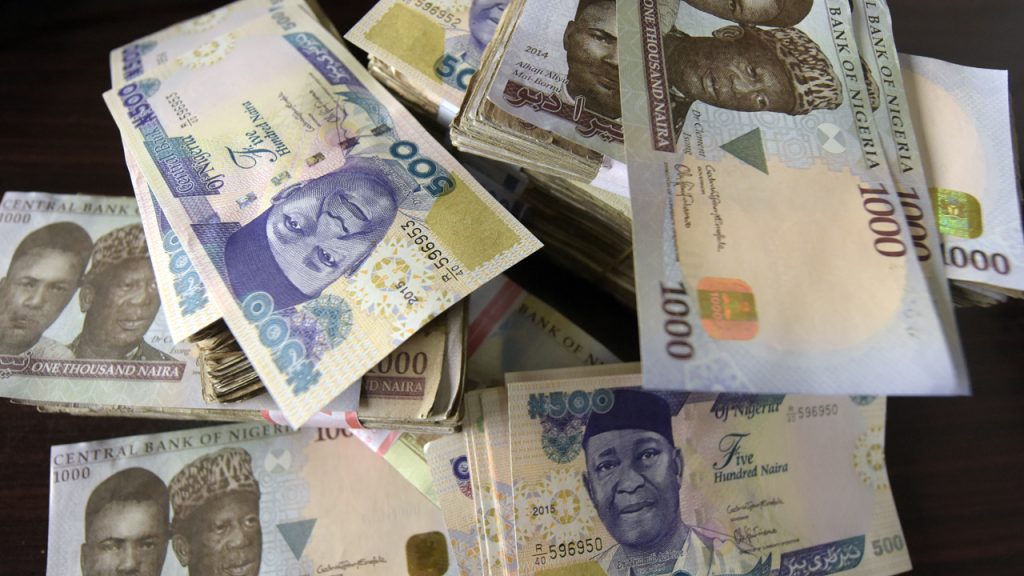The Nigerian financial landscape witnessed a notable shift in April 2025, as the amount of currency circulating outside the formal banking system decreased for the second time that year. Falling to N4.57 trillion from N4.60 trillion in March, this decline signals a potential turning point in Nigeria’s cash-dominant economy. While the April figure still represents a substantial year-on-year increase compared to April 2024, the month-on-month reduction suggests that the Central Bank of Nigeria’s (CBN) monetary policies, including maintaining the benchmark Monetary Policy Rate at 27.5%, might be starting to influence cash management practices. This decline follows a post-festive season peak in December 2024, indicating a return to a downward trend interrupted briefly in March. The consistent reduction in cash outside banks since the December peak signifies the potential impact of the CBN’s liquidity management strategies, particularly in curbing excess cash within the informal economy.
The decline in currency circulating outside banks is a significant development given the traditionally high levels of cash held outside the formal financial system in Nigeria. This trend suggests a possible shift in public behavior, potentially driven by a combination of factors. The CBN’s monetary tightening measures, coupled with the increasing adoption of digital financial channels, might be encouraging individuals and businesses to deposit cash into banks or utilize alternative transaction methods. This subtle shift, although marginal in absolute terms, represents a positive step towards greater financial inclusion and a more effective monetary policy environment. The observed change aligns with the global trend towards digital transactions and could signal a gradual transformation of Nigeria’s cash-dependent economy.
While the total currency in circulation continued to grow year-on-year, reaching N5.01 trillion in April 2025, the proportion held outside banks decreased slightly. This shift, though seemingly minor, indicates a growing preference for formal banking channels and digital payment methods. The increase in the percentage of cash held within deposit money banks suggests that the CBN’s efforts to promote financial intermediation may be gaining traction. This movement towards formal financial channels can contribute to greater financial stability, improved monetary policy transmission, and enhanced transparency in financial transactions. It lays the groundwork for a more robust and efficient financial system, potentially unlocking further economic growth and development.
The observed decline in currency outside banks, combined with a cooling inflation trend, suggests that the CBN’s monetary policies are having the desired effect. As money growth slows and excess liquidity is contained, demand-side inflationary pressures are likely to subside further. This provides the CBN with more flexibility in managing monetary policy and potentially avoids the need for further tightening. The reduced availability of physical cash, particularly outside the banking system, may also reflect the public’s growing sensitivity to interest rate changes and the increasing cost of cash-based transactions. This responsiveness to monetary policy further strengthens the CBN’s position in managing inflation and maintaining economic stability.
Despite these positive indicators, significant challenges remain. The fact that over 91% of total currency still circulates outside the formal banking system highlights the persistent dominance of cash transactions in Nigeria. This high level of cash outside banks poses significant obstacles to monetary policy effectiveness, fiscal traceability, and anti-corruption efforts. The informal economy, fueled by cash transactions, remains largely outside the regulatory framework, hindering the government’s ability to accurately assess and manage economic activity. Addressing this challenge requires a multi-pronged approach, including further promoting digital financial inclusion, strengthening financial literacy, and enhancing the regulatory oversight of the informal sector.
Moving forward, sustaining and accelerating the shift toward formal financial channels and digital transactions is crucial for Nigeria’s economic development. The CBN’s continued efforts to promote financial inclusion, alongside initiatives to improve financial literacy and expand access to digital financial services, are key to achieving this goal. Furthermore, addressing the underlying structural issues that contribute to the high level of cash outside the banking system, such as limited access to formal financial services in rural areas and a lack of trust in the formal financial sector, is essential for fostering long-term change. By tackling these challenges, Nigeria can unlock the full potential of its economy and create a more inclusive and robust financial system.


